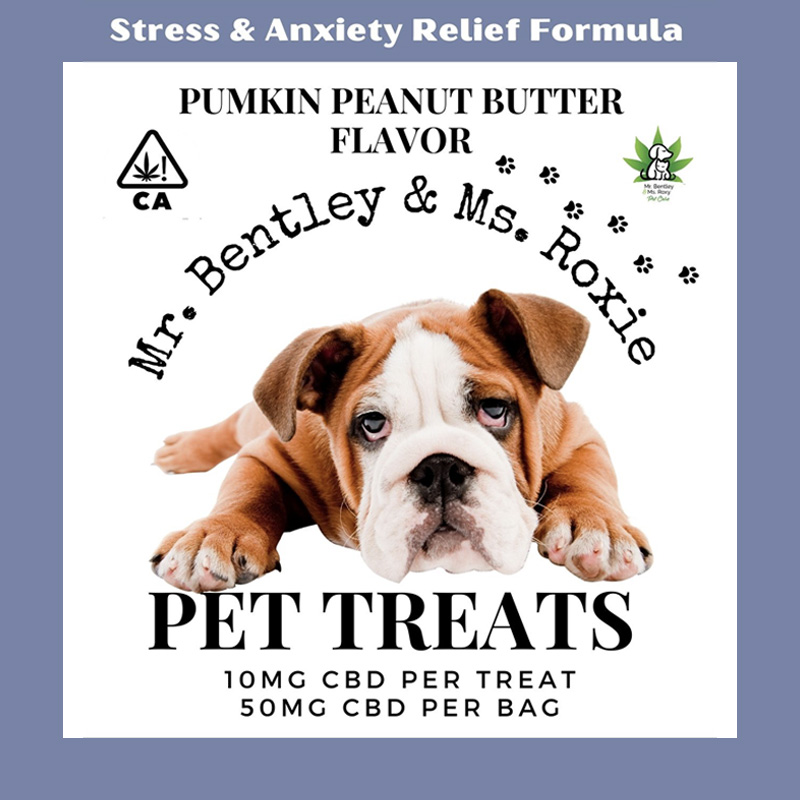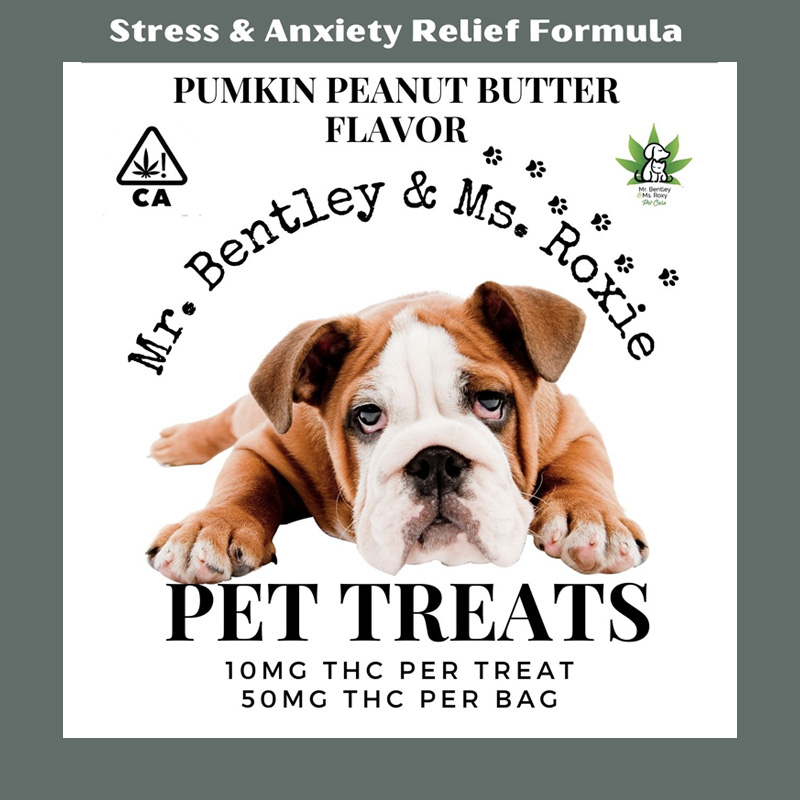Mr. Bentley & Ms Roxy

Both THC (tetrahydrocannabinol) and CBD (cannabidiol) offer potential benefits for dogs, but it’s essential to understand that THC can have psychoactive effects and can be toxic to dogs in higher doses. CBD, on the other hand, is generally considered safe and is the primary cannabinoid used in pet care products. Here are the potential benefits of THC and CBD for dogs:
CBD
Mr. Bentley & Ms. Roxy is a cannabis pet care line that focuses on providing products to ease inflammation in pets, specifically utilizing CBD (cannabidiol) as a key ingredient. CBD, derived from cannabis plants, has been known for its potential therapeutic effects in both humans and pets. Here’s an overview of the benefits associated with using CBD for pet care, as described in your statement:


CBD (Cannabidiol) Benefits for Dogs:
- Soothing Nausea: CBD can help soothe nausea in pets, providing relief from this discomforting symptom.
- Stimulating Appetite: CBD may stimulate appetite in pets, which is especially beneficial for animals experiencing appetite loss.
- Easing Pain: CBD is known to have analgesic (pain-relieving) properties, potentially providing relief from pain and discomfort in pets.
- Controlling Seizures: CBD has shown promise in controlling seizures in both humans and animals, making it a valuable treatment for pets with seizure disorders.
- Boosting Heart Health: CBD may have positive effects on heart health in pets, potentially supporting cardiovascular function.
- Lowering Anxiety: CBD can help alleviate symptoms of anxiety in pets by interacting with the endocannabinoid system, stimulating serotonin production, and stabilizing mood. This can result in a calmer and more relaxed demeanor in dogs.
- Calming Hyperactivity: CBD can help lower excess energy and calm hyperactive dogs, providing a sense of relaxation and tranquility.

THC
The benefits of THC (tetrahydrocannabinol) for dogs are a topic of ongoing research and discussion. THC is the primary psychoactive compound found in cannabis, and its effects on dogs can be quite different from those on humans due to dogs’ sensitivity to THC. It’s important to note that THC can be toxic to dogs, especially in higher doses, and its use should be approached with caution.
THC (Tetrahydrocannabinol) Considerations for Dogs:
- Analgesic (Pain Management): THC is recognized for its analgesic properties, which can assist in managing pain and providing relief for individuals or pets experiencing discomfort.
- Anti-Cancer: Studies suggest that THC may have potential anti-cancer properties, although further research is needed to fully understand its effectiveness in treating cancer.
- Anti-Nausea: THC has been shown to have anti-nausea effects, making it beneficial for individuals or pets experiencing nausea and vomiting, such as those undergoing chemotherapy.
- Sedative: THC has a sedative effect, which can help promote relaxation and a sense of calm in individuals or pets.
- Neuroprotective: THC is believed to have neuroprotective properties, potentially offering protection to the nervous system and brain cells.
- Reduction of Intraocular Pressure: THC is known to reduce intraocular pressure, making it a potential treatment for conditions like glaucoma.
- Bronchodilator: THC has bronchodilator properties, which can help widen the airways and improve breathing in individuals or pets with respiratory issues.
- Promotes Sleep: THC can promote sleep and may be beneficial for individuals or pets struggling with insomnia or other sleep-related issues.

However, it’s crucial to exercise caution when using THC with dogs due to its psychoactive effects and potential toxicity. Dogs are more sensitive to THC, and it can lead to various adverse effects, including lethargy, lack of coordination, increased heart rate, drooling, vomiting, urinary incontinence, tremors, and, in severe cases, seizures or coma.
When using cannabis-derived products for your dog, it’s essential to choose high-quality CBD products that contain minimal or no THC to ensure the safety and well-being of your pet. Always consult with a veterinarian before introducing any new supplements or treatments, and closely monitor your dog for any signs of adverse reactions.
